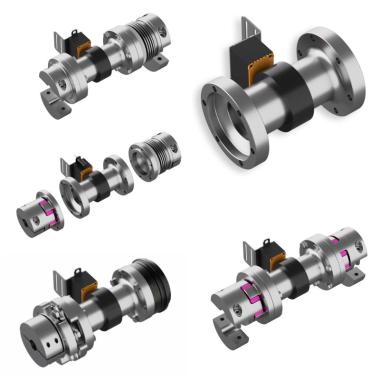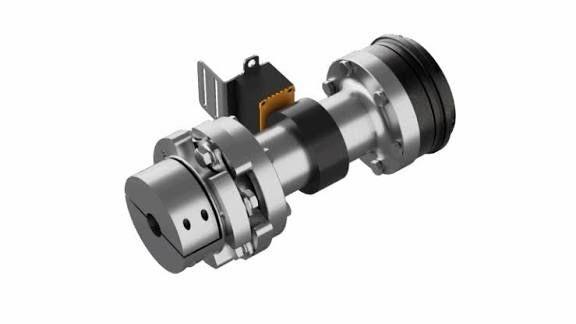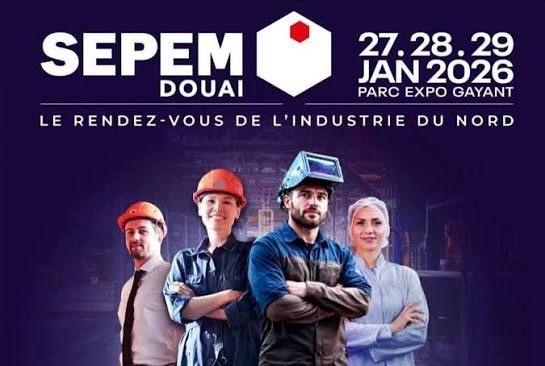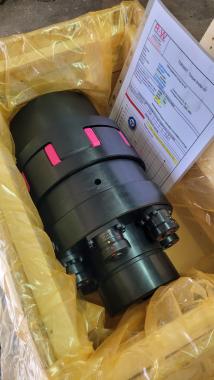What kind of training for Industry 4.0?

The world of industry integrates new technologies as real revolutions. The development possibilities are endless. To meet this challenge, the skills and knowledge of employees are at the heart of the processes. What training for the industry of the future 4.0? Artificial intelligence, robotics, 3D printing, etc. are all areas that require learning. Ongoing training for all players in the various industrial sectors is essential, while it is becoming crucial to promote the industry and its opportunities in the eyes of students in initial training. Discover how to reconcile theory and practice to meet the prospects of tomorrow's industry.
What professions for the industry of tomorrow?
Working in an industry no longer means spending your days on a production line performing repetitive tasks or having your hands covered in grease in an unbreathable atmosphere.
The industry of the future is becoming sexy with varied areas of expertise that are closer to tertiary than secondary trades.
Families of new professions
The main families of new professions actively sought by companies that engage in the industry of the future are:
- The maintenance professions , and in particular predictive maintenance. It is no longer a question of intervening in the event of a breakdown, but of anticipating problems using sensors and artificial intelligence. The intervention is carried out upstream to avoid disrupting the manufacturing process. Example: industrial maintenance manager.
- The production professions which are undergoing a major change. Priority is given to autonomy and accountability. Jobs are rewarding and valued. The technologies of the future relieve operators of daunting tasks to enable them to exploit their skills and know-how. Example: line driver.
- The Big Data professions that nestle at the heart of Industry 4.0 due to the permanent exploitation of data. The era of paper is over and all processes must adapt. Data is collected, stored and analyzed in various ways to bring out ever more innovative concepts and solutions. Example: data scientist.
- The logistics or supply chain professions are developing around a much more collaborative work ecosystem. New technologies and the resulting customer expectations require ensuring the proper functioning of the company. Example: warehouse manager.
- Management professions . The positions held require transversal and multidisciplinary skills for constructive exchanges at all levels of the hierarchy and within all teams. We are talking about performance management. Gone are the days when each department looked for a solution in its corner. In the age of the industry of the future, collaboration is total. Example: team leader.
Professions unknown a few years back
In addition to these major families of professions, there are very specific needs depending on the technologies used .
Your company is committed to the future. You may soon be recruiting:
- An additive manufacturing engineer
- A cobotics engineer
- A virtual or augmented reality engineer
- A developer of connected objects
- Etc.
What training for the industry of the future 4.0? How to find the rare pearl that will contribute to the development of your company and how to help your loyal employees to evolve serenely between the past and the future?
How to train employees from the industry of the past?
Integrating new high-performance technologies into the company offers development opportunities. On one condition: that employees know how to use them!
An essential awareness phase
Recruiting young graduates who are experts in a sector represents a solution, but the first avenue to study is to train employees who have worked for years to ensure the sustainability of the company .
New technologies generate fear among most employees. Introducing a robot into a warehouse creates concern about job security. Can one be replaced by a machine? The answer is no, but training is essential to use the new tools available, thus improving your working conditions and developing your position .
The industry of the past operated on the basis of a paper model. Today, everything is digitized. All processes need to be reinvented. Companies must decompartmentalise their knowledge and skills to enter into a much more collaborative model.
The first effort is to raise staff awareness . Management represents a leading discipline in this issue and the company manager must understand it.
Achievements almost completely called into question
The difficulty in this evolution of thinking and working methods is to accept that after decades of specialization, industry is moving towards multidisciplinary jobs .
It becomes essential to understand what the missions of colleagues consist of in order to be able to work effectively yourself. Destabilizing!
To revolutionize the culture of the company, start from the problems encountered, the experience and the dysfunctions to explain to your employees that new solutions exist. They will make their daily lives easier while allowing them to progress within their jobs.
This collaboration is established step by step through continuing education. The workstation becomes a learning position to sustain jobs .
An essential financial and time investment
Stop thinking that training in the industry of the future 4.0 only represents a percentage of time and an available budget envelope.
An investment in the training of employees is essential to enter serenely into the industry of the future . Employees who are fulfilled and proud of their job are more productive, less often absent and totally devoted to the company which has enabled them to develop their career.
New technologies facilitate access to information, but the aspects of support, coaching and communication remain essential to ensure the proper integration of knowledge.
How to make young people want to move towards industry 4.0?
The industry of the future is constantly evolving. Today we are only at the beginning and nothing can be sustained without the collaboration of the new generations.
Problem: the industry does not attract students . In question, an erroneous vision of the profession and courses that do not highlight technology.
Raising awareness among young people to make the industry attractive
To attract students to courses linked to the technologies of the future, an effort to raise awareness is also essential.
To show a positive image of the industry to young people, open the doors of your factories and offer interactions with your employees to help them discover your professions . Those who have already benefited from such initiatives admit “never having thought that it was possible to achieve so many things with new technologies”.
In addition to the "techno" courses in college, the national education system has integrated, from the second course, courses in digital sciences and technologies in order to guide adolescents towards the jobs of tomorrow. This step forward is more than welcome, especially in sectors that sometimes evolve much faster than the programs.
The subject of diversity must be underlined, because manufacturers are struggling to recruit women. The training organizations confirm it, the fairer sex represents only a tiny part of each promotion . Women occupy only 28% of jobs in the industrial sector, generally in administrative positions.
Understand the needs and expectations of new generations
Training in the industry of the future 4.0 does not provide an answer to everything.
The needs and expectations of new generations differ from those of their predecessors. No need to show recruits how to do it, because the methodologies correspond to those of the past.
Encourage young graduates to invent the future and create tomorrow's solutions . This generation in search of meaning does not want a job, but to work every day to change the world. It is not the technologies that will keep a young person in a position, but rather the prospects that their daily tasks and missions contribute to a better future.
As an industrialist, display your values in terms of CSR and Sustainable Development to attract employees eager for change .
What training for the industry of the future 4.0?
Continuous training for employees and collaborators
More pragmatically, here is a non-exhaustive listing of some continuing education courses to help your employees begin a smooth transition to the industry of tomorrow:
- Opco 2i and its branch professional qualification certificates
- Clea certificate and its digital Clea professional certification
- Executive Education Dauphine and its Industry 4.0 certificate
Initial training for new generations
In search of talent, training organizations for the industry of the future 4.0 offer you a real pool of future recruits ready to propel your industry into a new era :
- IUT of Haguenau and its factory-school of the industry of the future
- Institut Mines-Telecom and its professions in industry 4.0
- The Industry of the Future Alliance and its collaborative project “Osons l’industrie”
Training for the industry of the future 4.0 represents a first step towards mastering the technologies of tomorrow. The learning is intended to be collaborative, practical and evolutionary . Placing people at the heart of the problem ensures greater success of the training chosen and real daily involvement of your employees to meet your next challenges.
Our other news
See allJoin the largest community of industrial suppliers
- Helping you with your ongoing technology watch
- Provide you with detailed supplier statistics
- Give you international visibility
Discover the largest catalogue of industrial products on the market
- To offer you the best catalogue of industrial products on the market
- To guarantee you a 100% secure platform
- Enable you to have live remote exchanges
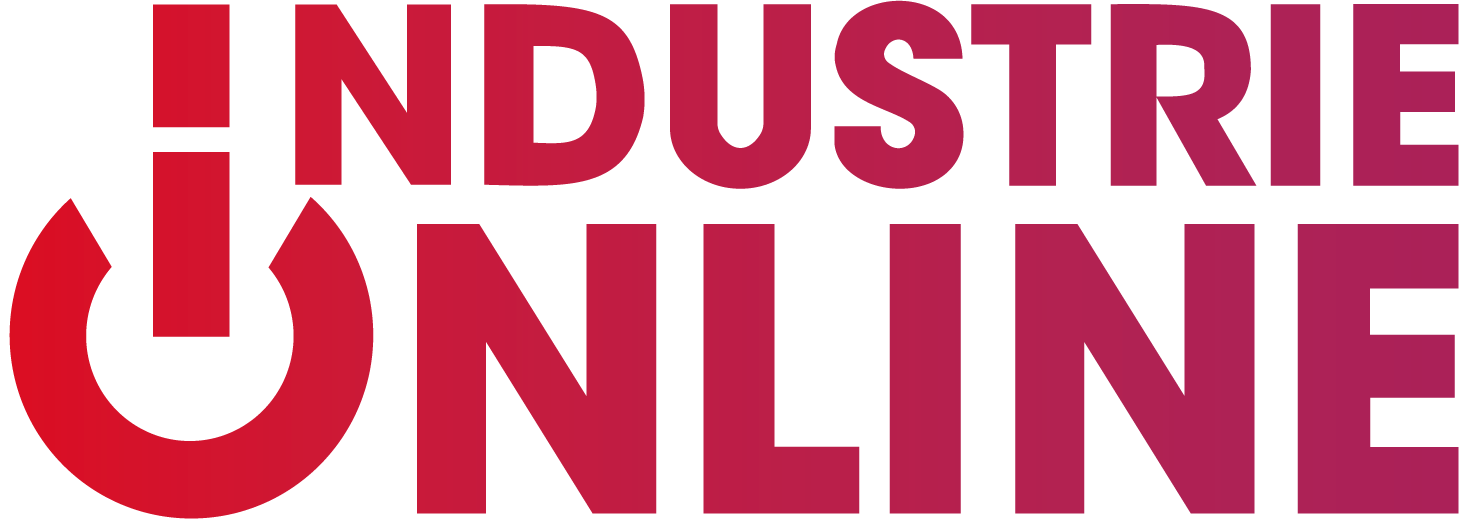

 Français
Français 
